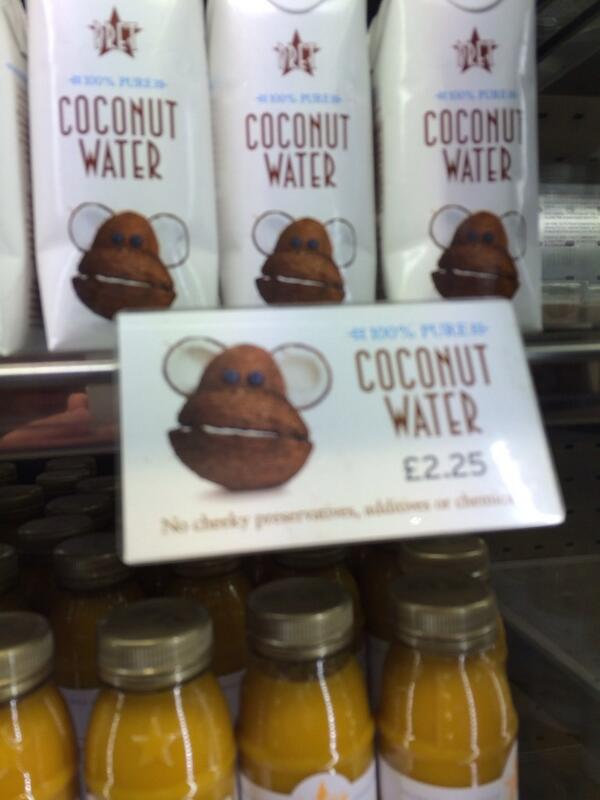RAWR! I just finished watching an episode of Dragon's Den that was so bad I had to start a blog. Yes, the RPS (Rawr! per second) was that high.
Dragon's Den is the UK version of the US show Shark Tank (ok it's actually the other way around, but I don't live in the UK and I saw Shark Tank before I knew of Dragon's Den). The idea is simple: Entrepreneurs pitch their product and ask for an investment. If one of the Dragons like the idea they'll invest.
The show started off with a very scientific idea that was disregarded much too quickly if you'd ask me. Look at this picture. I would love to have one of these pieces of art. Imagine your own DNA being part of the artwork. The Dragons didn't think that science and art go together well. I know many great science artists that would disagree. I want to know where I can get one for me and my cubs.
 |
| Tell me you don't want one of these |
"Nourish Me Now", a natural sports recovery drink. The entrepreneur in pink says that the idea for this product came about when she was training for a triathlon and was disappointed with all the "synthetic" options for exercise recovery. She claims a background in physiotherapy and biology. Speaking of their company she says:
"Our philosophy is "No chemicals, just nature. You can't lose.'"
 |
| My philosophy is "RAWR!!" |
She goes on to claim that her drink is:
"Low fat. It's healthy. It's not full of chemicals"
Let's think about that claim. It only took one sentence to contradict herself. Your drink can't be low in fat with no chemicals. Fats are long chain chemicals that look like this:
Kelly Hoppen (one of the Dragons) disputes the claim that the drink contains no chemicals, but her problem is that the drink contains non-organic fruit (which would still contain chemicals).
The entrepreneur explains that they don't need preservatives because "some of the fruit juices we use contain citric acid"
Peter Jones (another Dragon) then further disputes the presence of sugar. She says that instead of sugar being added the entrepreneurs should have used "natural sugar". I'm not sure what that really means. It certainly doesn't address the reason that a high sugar drink would be bad for you; it still has the sugar in it.
The pink entrepreneur, showing that now she does understand chemistry, defends using sugar in the drink saying:
"Well how else would you get the carbohydrate in?"
The second entrepreneur speaks up to defend the non-organic fruits used in the drink says that "There isn't any evidence against organic and recovery". So she'll admit that organic foods aren't any better for recovery. Why then are they so adamant about the "natural" and "chemical-free" claims? I'm not understanding these people.
Kelly Hoppen didn't like these claims one bit. She says:
"You can't say that organic isn't better than not."
 |
| I had this look on my face the whole time. Even when Kelly here was speaking (she's even deeper into the nonsense). |
Then there's this hard hitting question from Piers Linney (another Dragon)
"What if the evidence showed that pouring a load of chemicals into that made it more effective. Would you do that?"
The pink shirted entrepreneur replies:
"No 'cause I don't want to...wouldn't want to...wouldn't want that in my body."
RAAAWWWRRRR!!!
She admits that evidence plays no role in her decision. This means that later, when defending her product she says "...but the evidence is there" I don't believe a word she says. Not only does she present no evidence she admits that evidence won't change her mind. What science background did she claim again?
The whole scene was very contradictory to me. Here's a woman who:
- Claims a degree in the sciences but rejects science.
- Is selling an all-natural product but says that an organic label is unnecessary as the organic nature of product doesn't improve it's performance.
- "Has the evidence" but refuses to change her mind based on evidence.
- Says her product is chemical-free just after telling us which chemicals are in it.
And what evidence does she even have? From what I can tell she's selling milk, yogurt, strawberries, and sugar. All packaged as a "natural recovery drink". That's not a novel product it's a milkshake.
Ya, I wouldn't have invested either. Smart move there Dragons.
A Note (before the comments get too angry):
Let me be clear on one thing: I know that when these entrepreneurs say that their product is "chemical-free" what they mean is that there are no harmful chemicals, but that's not ok. There is a real problem with throwing around the term "chemical-free". For one it leads to a misunderstanding of chemistry (and thus the world). Furthermore it gives companies a marketing loophole. Just claim your product as chemical free and you're already better than your competitor. You can even sell an identical product as "chemical free" just to look better. How about some specifics? Here's a challenge for any company selling a "chemical free" product:
Don't just tell me product doesn't contain chemicals. Tell me which chemicals you have removed (as compared to your competitor), why they were removed, and whether your product is actually better because of it. Until then "chemical free" just means "I don't think you'll do your research before buying."
Rawr.




